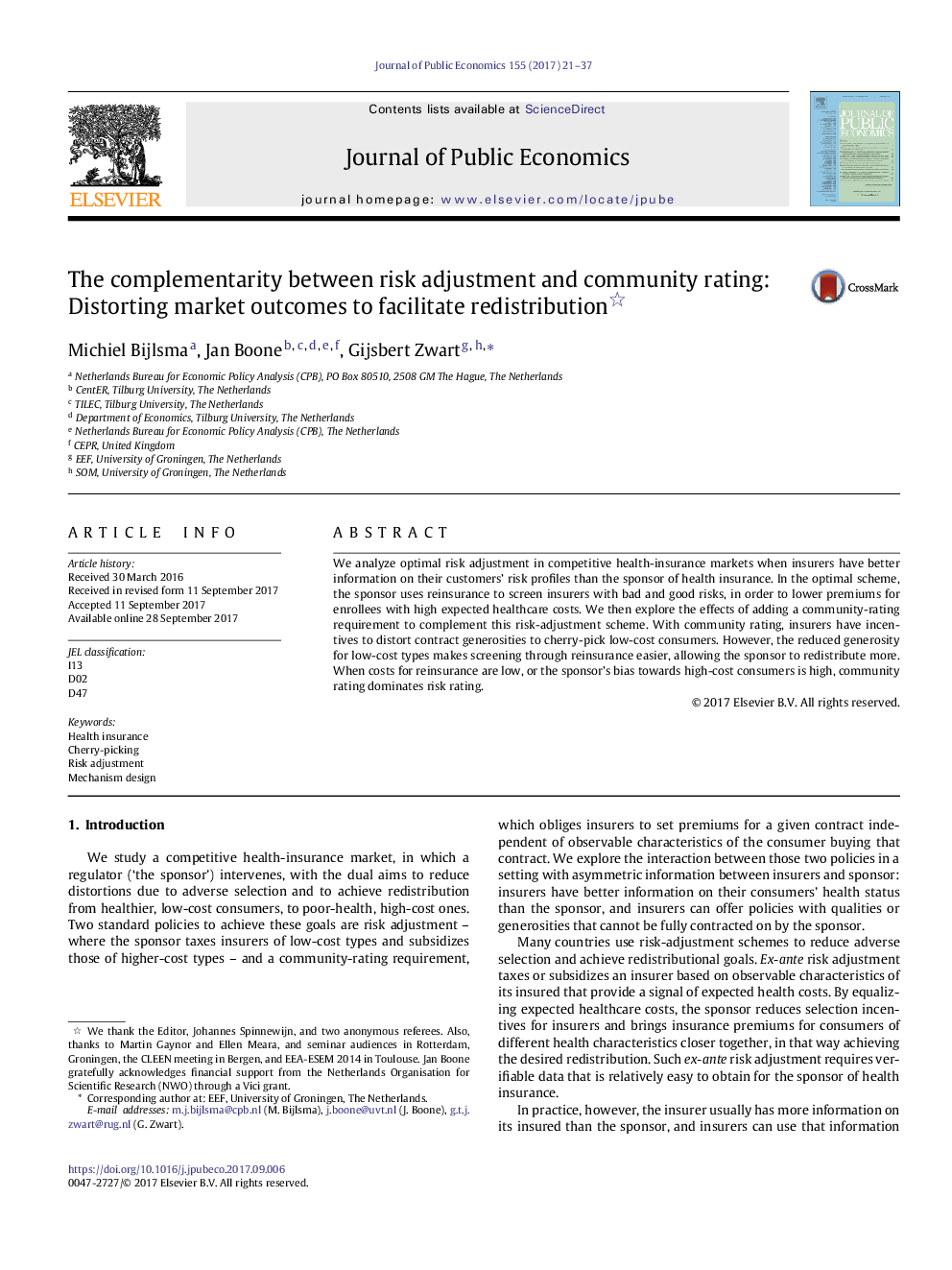| Article ID | Journal | Published Year | Pages | File Type |
|---|---|---|---|---|
| 5101741 | Journal of Public Economics | 2017 | 17 Pages |
Abstract
We analyze optimal risk adjustment in competitive health-insurance markets when insurers have better information on their customers' risk profiles than the sponsor of health insurance. In the optimal scheme, the sponsor uses reinsurance to screen insurers with bad and good risks, in order to lower premiums for enrollees with high expected healthcare costs. We then explore the effects of adding a community-rating requirement to complement this risk-adjustment scheme. With community rating, insurers have incentives to distort contract generosities to cherry-pick low-cost consumers. However, the reduced generosity for low-cost types makes screening through reinsurance easier, allowing the sponsor to redistribute more. When costs for reinsurance are low, or the sponsor's bias towards high-cost consumers is high, community rating dominates risk rating.
Related Topics
Social Sciences and Humanities
Economics, Econometrics and Finance
Economics and Econometrics
Authors
Michiel Bijlsma, Jan Boone, Gijsbert Zwart,
